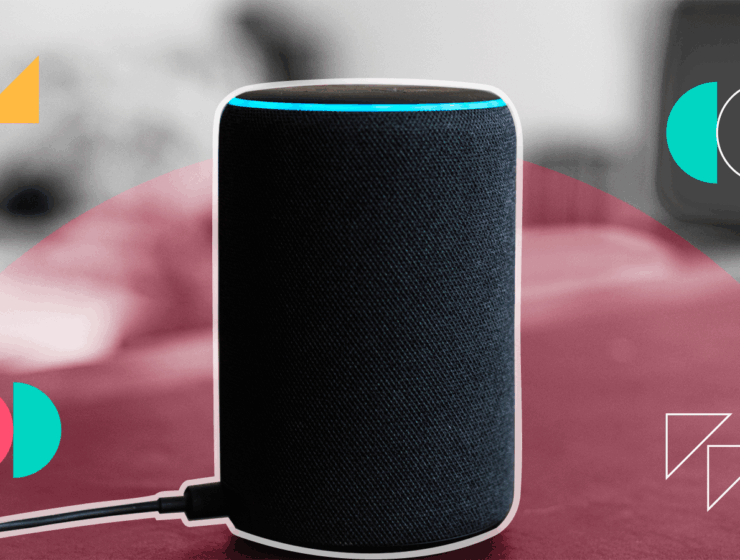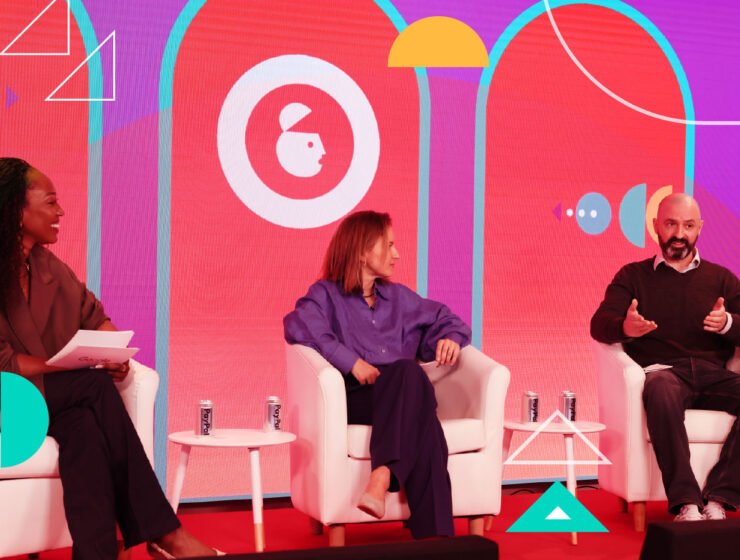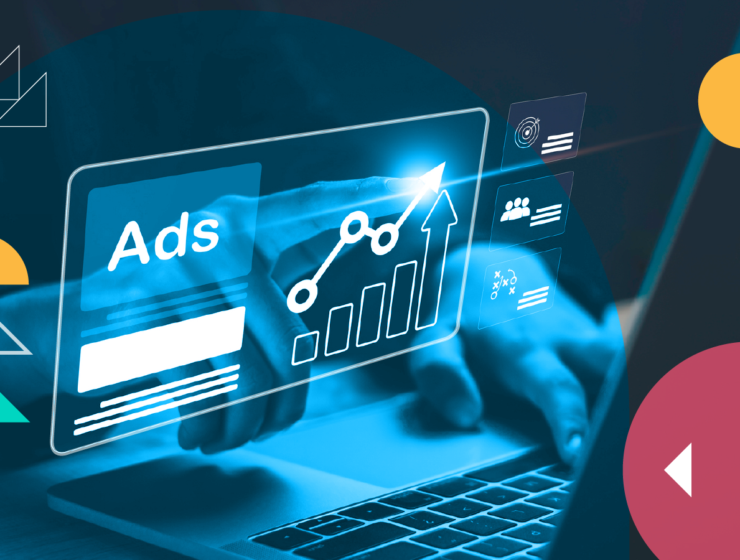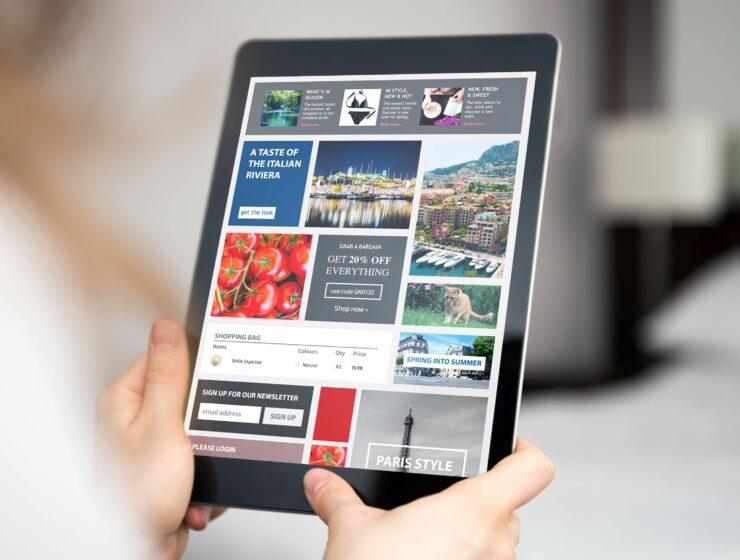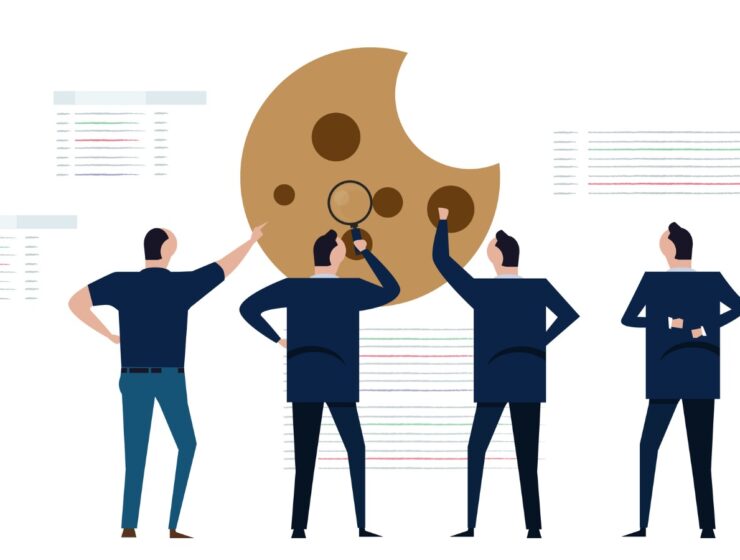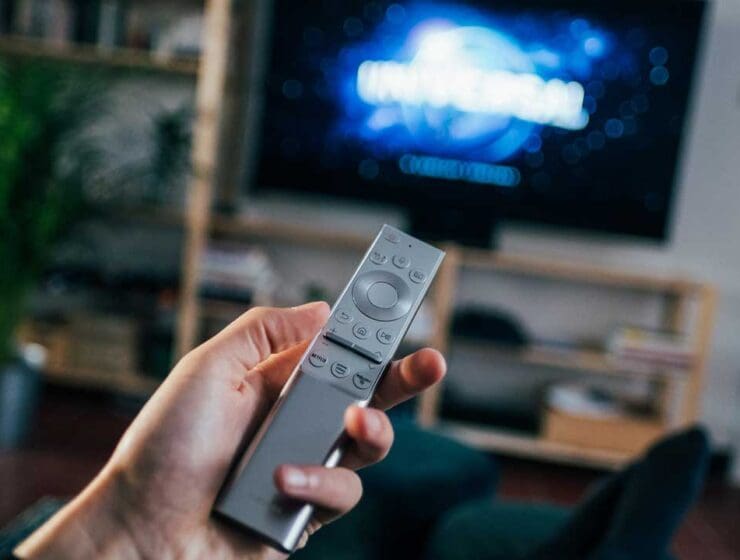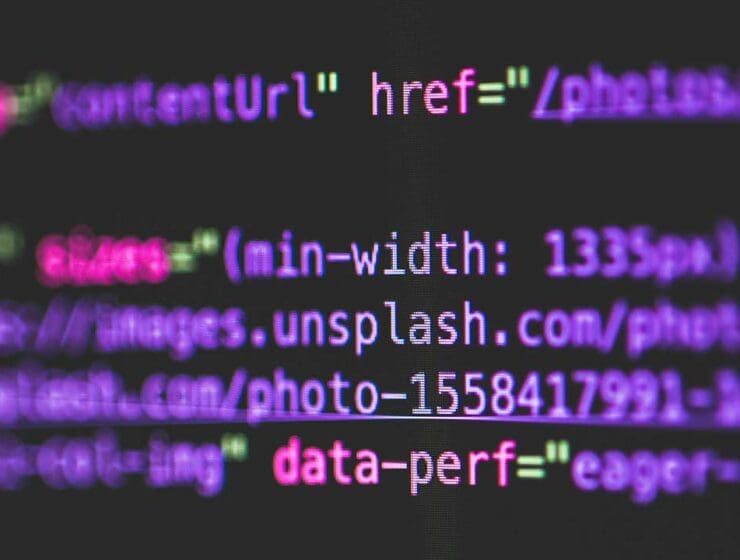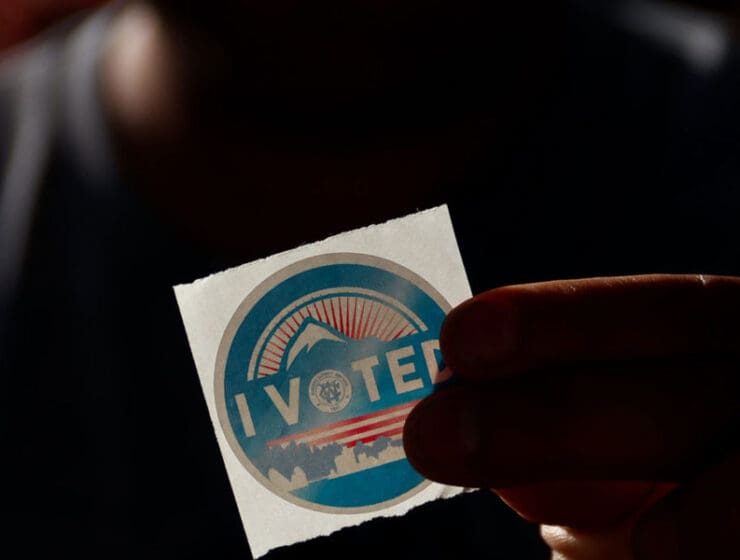True curation could begin behind the scenes, by shaping impressions at the placement level, by dynamically adapting pricing to specific buyer needs, and by processing decisions at scale.
Tag: Tech
Today, brands must focus not just on the stories they tell, but on how they make people feel – and why they matter. For Gen Z, this means stories that are visually bold, co-created, culturally tuned and tech-enhanced – with substance at their core.

The transformation of Westfield World Trade Center’s media network illustrates a new era in out-of-home advertising in transit hubs: one where technology, immersive art, and brand identity converge to create dynamic, high-impact experiences.
Auto buyers aren’t just scrolling; they’re searching, comparing, and deciding. And some of the most influential moments in that journey increasingly happen beyond the walled gardens.
Q&A with José Antonio Martínez Aguilar (JAMA), Global CEO of Making Science
Scaling a small business isn’t about just keeping up—it’s about recalibrating everything on the fly, without losing what made your brand matter in the first place.
It’s time to step out of Google’s shadow, be proactive and start delivering truly game-changing omnichannel advertising.
The question is, where might Amazon further grow those ad dollars? Some have speculated that Amazon’s recent decision to launch an AI-driven Alexa+ service may pave the way for an ad-tiered Alexa experience.
The growth potential of open web publishers will lie in the amount of work they can put in. It’s going to take adaptability, proactive engagement in data strategies, and a willingness to evolve.
Wednesday’s panel began with Google’s Managing Director of Technology, Media, and Telecommunications, Vanessa Kingori discussing the AI innovations driving the advancement in Google Search.
The reintegration of audience and context marks the beginning of a new era—one where advertisers, publishers, and consumers alike can benefit from campaigns that don’t just target but truly connect.
The industry is at a critical juncture where privacy-first solutions, better measurement, and programmatic advancements must move from theory to widespread implementation.
As algorithms and automation sometimes leave advertisers with questions, forward-thinking agencies are welcoming the winds of change into their sails.
By prioritizing partners who meet these essential criteria, advertisers can protect their brands effectively and maintain trust in a complex digital landscape.
The Trade Desk’s acquisition of Sincera is a bold move, but it’s also a sign of the times.
In an increasingly unpredictable world, the amount of questionable and dangerous content within the walled gardens will only increase.
Modern-day SSPs are significantly enhancing the performance of DSPs, elevating their effectiveness in the advertising ecosystem. The collaboration between SSPs and DSPs is proving to be a game changer in maximizing the impact of digital marketing strategies.
The path to successful implementation requires thoughtful planning and consistent optimisation, but the rewards are clear: organisations that embrace curation’s strategic potential will be better positioned to deliver privacy-compliant, highly targeted campaigns that drive measurable business results.
As 2024 draws to a close, it’s always instructive to pause and think about what the next year might hold. Here’s my take on what we can expect to see in 2025.
As always, we’re bullish about the future of advertising. Improvements in technology will bring greater efficiencies, and developments in content delivery will continue to offer both advertisers and consumers more choice.
Maximizing the quality of first-party signals through regular tagging audits is a way to enhance the effectiveness of performance campaigns, especially as we move away from third-party cookies. Embracing this practice and performing quarterly audits will help brands to stay ahead and truly connect with their audience.
By embracing a purist approach to curation, agencies can optimize their media spending, foster trust with their partners, and ultimately drive better client outcomes.
These are just some of the dynamic ways that RCS will level-up text message marketing. Start strategizing how you can leverage the benefits of RCS in your marketing program.
The open web is too important to lose. We can’t let it be killed off by walled gardens, but if we keep making it hard for publishers to make money then that’s exactly what will happen.
Adam Roodman, GM of Yahoo DSP, shares his perspective on what the year ahead will look like for digital advertising.
In the attention economy, the brands that can not only capture but sustain consumer engagement will be the ones that succeed. Now is the time to lean into the open internet, harness the power of video, and rethink how we define and measure success in this evolving landscape.
Bridging the gap between marketing and security is possible and necessary in today’s digital landscape.
Advertising Week sat down with Michael Hanbury-Williams, Managing Director UK at Greenbids to discuss his…
Learn how to adjust your creative strategy with “intimacy” and “immediacy” levers through AI and data- driven insights that help drive sales and long term brand equity.
Learn about the latest AI tools for marketers and how brands are investing in AI to increase campaign effectiveness, reimagine resource constraints and garner real marketing results.
Learn how to navigate the constraints of quality, speed, and cost while staying ahead of technological advancements and evolving auction dynamics that help drive better results for your business.
By fostering greater collaboration between publishers and advertisers, the industry can move towards a more transparent, efficient, and privacy-focused future.
Brands recognise that traditional media planning, buying, and measurement models are no longer effective. They are now looking for technology platforms that have adapted to offer solutions that simplify their media supply chain, maximise their media investment, and seamlessly integrate the next emerging channel — whatever or wherever that may be.
We all have a responsibility to be responsible advertisers. While the fallout of GARM is a blow, the issue highlights the importance of prioritising brand safety right now and its significance in today’s media landscape.
It’s about time for the financial industry to undergo a significant technological transformation. Blockchain’s speed and transparency are upending the status quo, AI is personalizing financial services, and digital currencies are fundamentally changing the way we think about money.
There is no doubt that the ever-spreading use of AI, especially generative AI, could cause brand safety issues. Already we’re seeing incredibly life-like deep fakes videos, images, and audio perforating online.
Marketers continue to face the daunting challenge of content overload in today’s generative-AI fueled digital environment. To address this, it is crucial for organizations to establish a single source of truth, ensuring data accuracy and consistency across all marketing channels.
Advertisers who embrace these advanced solutions will not only protect their brand but also maximize their reach and impact in an increasingly complex digital landscape. The Olympics, with its global audience and high engagement, highlights the need for this shift more than ever.
While there will never be a one-size-fits-all solution to fulfilling media plans and driving target audience action, marketers that are equipping themselves with the right data and insights is essential for maintaining cost-efficiency and high conversion rates. This strategy minimizes cash burn and keeps your brand ahead of the competition.
When Google’s ‘A new path for Privacy Sandbox on the web’ blog post about Chrome no longer deprecating third-party cookie was published a few weeks back, industry leaders breathed a collective sigh of relief.
Google’s recent decision to maintain its use of third-party cookies on Chrome, rather than phasing them out as previously announced, has sent ripples through the industry. This U-turn — like many of the tech giant’s decisions — has highlighted the complexities and dependencies within the digital ecosystem.
In a world where every moment counts, contextual targeting offers a path forward that is both effective and ethical, paving the way for a more meaningful and sustainable marketing ecosystem.
Ultimately, the decision to remain on X should be guided by a thorough evaluation of the platform’s alignment with a brand’s goals and target demographics, ensuring that the benefits outweigh the risks in an increasingly unpredictable social media landscape.
The battle for an open, fair internet – one that’s led by privacy-first technology, editorial excellence and world-class standards of transparency – can only be won with a thriving independent adtech sector.
The key to success is that telcos retain control of the solution and develop a true, service-layer proposition that’s easy to integrate and deploy.
A crack tech team and experimental culture are also must-haves to win over consumers where it matters most – at the screenface.
Google’s cookie deprecation might continue to edge further into the future, but publishers and advertisers should take advantage of the delay to test and optimise the fast-evolving power of contextual data, readying themselves to hit the ground running as cookies fast approach their use-by date.
Along with new developments from other foundational models such as Claude3 and Llama 3, the recent “updates” from OpenAi and Google show that AI transformation is accelerating.
In the world of outdoor advertising, where attention is the ultimate currency, the advancement of attention measurement is vital, turning conjecture into concrete data.
The move towards ID-free advertising is not just a compliance necessity but a strategic simplification.
By following these tips, brands do more than just improve their digital advertising efforts—they enable a stronger, more transparent and healthier dynamic with media agencies.
Is the delay of cookie deprecation a bad thing? Probably not, but it’s likely to maintain uncertainty within the advertising industry while just prolonging the inevitable.
By embracing QR Codes and other tech-driven strategies, brands can deepen their commitment to sustainability while working towards a more eco-conscious future.
As the space – and the technology that supports it – continues to emerge and evolve, marketers must keep in mind one thing before deciding whether to embrace any change: their customers.
It’s imperative for advertisers still looking for a post-cookie solution in 2024 to proactively adapt their strategies to feature contextual more centrally.
Broadly, OOH advertising has proven effectiveness across the marketing funnel. In a 2023 Morning Consult survey, 85% of adults said they have seen an OOH ad in the last 30 days.
Ultimately, the key to successfully leveraging URC lies in a balanced, strategic approach. For many, it may mean fully excluding URC.
The ad tech industry can and should guide publishers in optimizing their content categorization and metadata to improve the accuracy and effectiveness of contextual targeting.
With so much amazing content being created every single day online, there are lots of opportunities for creativity and innovation. But this new world also poses significant ethical challenges.
As the landscape continues to shift, DPO will give publishers the insights needed to take greater control of their advertising operations, optimise revenue and deliver better advertising experiences.
As discussions around climate reporting, net-zero targets, and industry-wide media measurement initiatives gain momentum, the importance of including media delivery measurements across a complex supply chain within Scope 3 emissions is becoming increasingly evident.
Let’s examine what an independent survey, conducted by Censuswide on behalf of Phrase, revealed about U.S. leaders’ global hesitancies and explore strategies for overcoming them.
Regardless of Google’s moves or those of any other walled garden in the post-cookie world, one thing is certain: the walled gardens have no motivation to support or better ads on the open web.
The cookieless future needs AI to maintain ad effectiveness. But have no fear, that future is here (and will only get better month-after-month).
Critics have been saying SEO is going to die for the past ten years, but it’s evolved and matured to become a conductor of digital strategy – not just an add on.
As we roll into 2024, the advertising industry must focus its full attention on the imminent transition to a post-cookie world.
In this post, I’ll talk about what I see as the real drivers behind LinkedIn advertising growth and what the platform can do to keep making inroads into B2B marketing budgets.
Amid the loss of third-party cookies and rising consumer concern about online data usage, the industry faces an urgent need to evolve long-entrenched processes. But what does that look like, and where should they focus first?
We are, definitively, in the first moment in which the way we search for information across the internet is drastically changing. Google and Bing aren’t the sole options for finding what you’re looking for any longer.
This year will also see the endgame for cookies, leaving many marketers scrambling for alternatives. Meanwhile, consumers are clearly shifting to omnichannel viewing and CTV is showing significant growth.
Given its sustainability and lower risk, 3D printing is an essential tool for brands and agencies looking to personalize and elevate the consumer experience.
While that’s a tectonic shift, not all is plain sailing. September is typically a banner month for new car sales in the UK, as the DVLA issues new number plates, but BEV sales to private buyers in September 2023 actually fell by 14% compared to September 2022.
Meta had their annual B2B Summit this week and covered some of their new tools/capabilities for B2B advertisers on their platforms. Here are a few of the big highlights.
It’s the formula of context+attention+creative that forms the most compelling model for the future of advertising in the cookieless world, seamlessly tapping into the nuances of user mindset in a way that antiquated profile-based models will never achieve.
Advertisers need to embrace the reality that the digital ad landscape is evolving rapidly, and past methods may not be applicable.
As the technology evolves to become more frictionless and cost efficient, more brands are finding meaningful, ROI-driven ways to enter the space, and future-proof themselves.
To make the most of this as yet unrealized opportunity, brands and advertisers will need to navigate the thorny issue of privacy by adding genuine value for their audiences.
There’s still time for marketers to embrace a new privacy-first paradigm whose scalability matches the ID-based practices the industry has relied on thus far. However, the clock is ticking.
The DOJ’s legal action against Google could take years. But while they are in trial, those who take this as a call to action and start planning ahead of the court’s decree will find long-term success.
Rapid technology evolutions in targeted advertising are empowering video service providers to redefine viewer engagement and boost their revenue. Let’s take a deeper look.
As technology continues to advance and the digital ecosystem evolves, embracing contextual audience targeting will be crucial for brands to thrive in a privacy-first environment.
Key industry organizations like the IAB and MRC will be critical in moving the needle here; encouraging higher standards and accreditations so that content-level analysis and intra-video tagging becomes more widely embraced.
Join us for a full-throttle workshop dedicated to building high-performance Reels. Learn how Reels ads…
Your creative is the key to unlocking performance in Reels – one of Meta’s fastest-growing…
If you see the same messages over and over again, you’ll get bored and eventually…
Predictive AI has been powering innovation in digital advertising over the past several years, and…
Alvin Bowles, VP, Global Business Group at Meta, alongside guest speakers Jay Pattisall of Forrester,…
As an advertiser, you don’t actually know what works and what doesn’t until you can…
As Google itself celebrates their quarter-century birthday, top executives from around the industry weigh in on Google’s milestone, their influence, and the future.
To effectively close the innovation gap in ecommerce, we need to recognize that we can’t do it all alone.
As the industry is pushed relentlessly towards the edge of the third-party cookie tracking precipice, innovations in contextual are ensuring that marketers can meet and engage with their audiences in the new privacy-first world.
The transformational nature of AI is crucial in predicting real-time changes in automotive consumer behavior
Ad-supported offerings present very promising opportunities for marketers who are concerned about data privacy and the effectiveness of their advertising practices into the future.
Publishers need to perhaps remember that modernising their technology is only one part of the equation and that they need to continue to invest in quality editorial as well.
This will be a fatal mistake for brands as they begin to engage consumers in the metaverse, which, as we’ve seen, takes brand immersion to a whole new level.
It feels like our industry is losing its optimism and succumbing to a postmodern form of cynicism. We are allowing our distrust in tech and other companies that have misused it to drive our vision for how it could be used creatively.
As brands continue to adapt and innovate, we can expect more engaging and memorable activations that redefine the boundaries of consumer-brand relationships and help businesses thrive in an increasingly competitive marketplace.
According to a 2022 report, 87% of U.S. consumers believe the metaverse will play a significant role in the way they interact with brands and 69% of marketers stated they were looking to build more experiences in metaverse-like environments in 2023.
Web 2.5 can help by familiarizing consumers with the Web3 technology while also helping brands and marketers position themselves as leaders in the revolutionary space.
In a technically complex digital advertising landscape facing significant economic headwinds, success relies on efficiency and ensuring that every dollar spent on advertising delivers real, tangible value.
The world has become dependent on a free and open internet, but the financial foundations are shifting.
As well as Google’s own algorithm changes, there are also developments in third-party cookie regulations that marketers need to be aware of, and the developing capabilities of AI.
Three industry domains are utilizing metaverse technology to enhance consumer experiences
By identifying problems and using the appropriate technology as a tool to solve them, there is the opportunity for brands to deliver innovative solutions that push the boundaries of what is possible.
Brands that use data to create connections with consumers, and tell authentic stories, will be successful in the internet of the future.
If we’re looking to move the needle forward on VR’s effectiveness, we need to start with clear objectives on what it can do to make a better experience for consumers…not just a flashier one.
Sellers of digital media must continue to demand a more efficient, transparent and sustainable supply chain that delivers on the true promise of programmatic.
While many people associate blockchain with cryptocurrencies and NFTs, its applications go far beyond digital currencies.
SSPs that embrace technology to deliver quality over quantity will forge a more efficient supply chain
While 5G technology had the potential to revolutionize telecommunications, it has not yet lived up to the promises made by marketers.
We will experience a historic renaissance for the TV industry, creating a boon for content producers and publishers and more and better content choices.
While the SSP industry is facing critical challenges, there is still significant potential for innovation and growth.
In the midst of all the uncertainty brands and their partners are bracing for in the digital ad ecosystem, one sure thing is that navigating the space will only become more complex.
Skepticism as to the usefulness of the metaverse to consumers and marketers is not only warranted, it’s essential.
A whole new marketing genre has emerged, which has helped brands and businesses reach more people more accurately, and arguably less intrusively.
AI-generated images are customizable, cost-effective, and hyper-targeted, making them a must-have tool in your marketing arsenal.
AI has transformed our industry, enabling us to create more targeted campaigns, automate routine tasks, and gain deeper insights.
Both Google and Apple will only be able to satisfy their obligations to their customers by adopting a zero-tolerance stance on fake reviews.
With digital becoming central to success for many businesses, CTOs are becoming an increasingly important hire.
If we look back at the evolution of streaming we can expect a frenetic flurry of activity and some major shake-ups in 2023.
We shouldn’t be dismissive of where AI will go. Time savings, manual labor – it’s great that AI will help us with these things.
Marketers need to take steps today to ensure that the solutions they are offering are high-quality and not reinforcing bias or inequity.
AI holds the key to the future of privacy-first, advertising on the open web and will completely transform all aspects of marketing.
Advertisers and agencies’ rising confidence in Advanced TV channels is grounded in their ability to deliver against marketing priorities.
To rise to the challenge of a post-Covid era, retailers need to build a reciprocal framework around their assets.
Here are three innovations that could reshape next year’s Super Bowl ads
In more ways than one, the industry is reeling, yes CTV is to 2023 what mobile was to 2008 because entertainment is recession resistant.
A creative losing their job to an AI may be easy to envision and worry about, it’s not the likely outcome of these tools.
By Stephanie Bunnell (Klimaszewski), SVP of Marketing at Aki Technologies, an Inmar Intelligence Company You…
A Conversation with Michael Rivera, Executive Creative Director at Upshot Agency
Meta’s new ASC tool is worth exploring its evolving Advantage product suite to gauge how they might help enhance your campaigns, whether it be to more efficiently reach a specific group of people looking to get in on the next clothing trend or expand brand activity into new markets.
IP address intelligence data won’t stop criminal cyber activity, but it can provide an additional, valuable layer of protection for in-house teams or MSSPs
Whether you’re new to advertising or have experience creating audio ads, one way to create a memorable experience for consumers is to add an interactive element to your audio ads.
Explore more ways Amazon Ads can help you reach and engage your audiences in the places they love to be.
By Sharat Potharaju, Co-founder and CEO, Beaconstac Total marketing budgets amount to between between 6%…
There’s little risk in experimenting with this corner of the emerging Web 3 world. And it’s a great way to be prepared for the tremendous change that lies ahead.
In this AW360 interview, we speak with Stephen Magli, Founder and CEO of AI Digital to get his thoughts on the state of programmatic and what lies ahead for the industry in 2023.
To continue to reach consumers, advertisers must work with publishers via a privacy-safe tech infrastructure to find, scale and activate their consented consumer data, including the opt-out consumers.
Programmatic advertising offers small-to-medium retailers the opportunity to maximise advertising budgets, boost campaign performance, putting them on a level playing field with larger players.
A recent study, using eye-tracking technology, shows that fully on-screen ad formats outperform typical mobile outstream formats by 2.5x and mobile display formats by 5x.
We have a long-held tradition of using photos, letters, and videos to keep the memories of deceased loved ones alive. AI tech is just the evolution of that – making these precious moments interactive and more tangible.
Whichever way things go in the future, right now, brands have an opportunity to build out capabilities that can help their data perform better.
Using an API to reference data in-place reduces complexity, data duplication, and streamlines business process flow.
Whether it’s a trade show or trade marketing briefing, a fashion show or a trends presentation, virtual events offer an incredible opportunity to step into the metaverse now.
During this period of political and economic uncertainty, the next few years may not be plain sailing for anyone running a company and trying to grow a brand.
In the final quarter of this challenging year, marketers can be reassured that the tools to withstand the additional pressure of delivering both efficiency and performance from media investments are readily available in programmatic media.
LiveRamp just completed a survey on cookies preparedness in LATAM in partnership with ComScore. An initial look at the results show that in the region, there is some confusion as to whether online marketers and publishers in the digital marketing space are in fact, using cookies.
New roles will support the rapid growth of the streaming television network’s distribution and new advertising offerings
While the Premier League hasn’t changed too much in recent years, the way fans watch and engage with the competition has.
Today, adopting a deep learning solution is frictionless and flexible. There’s no need to retrain your team or reinvent your marketing pipeline.
Contextual targeting is the core of the future of advertising. Both Google Topics and programmatic DOOH can bring this next phase into reality, and will allow advertisers to step confidently into this brave new world.
How ‘Screen Zero’ is Driving the Future of How We Consume Content By Abhay Singhal,…
Consumers have shifted towards TV streaming, and quality, in-demand content is following. Here’s how marketers can stand out in the streaming decade.
As we look ahead, it is important that we understand the significance of the shift that is happening and take the opportunity to influence it
Now is the time for advertisers and publishers to start figuring out the role of CTV in their plans and work together with trusted ad tech partners to help them ‘test and learn’ their way to success.
Each of today’s convergent entertainment players has its unique ability to leverage data on behalf of advertisers.
There is enormous potential for NFTs to be used for greater, purpose-led initiatives when you look beyond the hype.
The advancement of AI provides tools at our disposal, not machines competing for our jobs: so AI is more of a companion than a rival.
Using predictions-based marketing allows you to automatically engage your audience by requesting their input, which allows people to showcase their knowledge – a thing most enjoy.
As both sides of the advertising ecosystem become progressively more aware of how closer collaboration can unlock these many benefits, innovative partnerships are cropping up throughout the ad tech space.
Deep Learning algorithms analyse offers and how attractive they are from a user’s perspective. This approach makes it possible to implement a strategy where there is otherwise no clear pattern for a particular group of users.
Streaming platforms are now in warfare on multiple levels, advertising dollars and subscribers, which will continue to rumble on.
Brands can see far beyond the creative horizons of the past, generating boundless worlds and stories. The only restriction will be the limits of our imagination.
Brands that design more accessible solutions open their tent to serve more customers and serve them better.
Ultimately, we are only scratching the surface of the possibilities of live linear OTT in Asia Pacific.
Besides the client-side benefits inherent with constant API parity, your team—no matter what its size—can use its mental and physical bandwidth on business drivers, customer relations, and other high-value, high-satisfaction efforts.
NFTs and Web3 are investments that really allow that one-to-one brand-to-consumer connection to happen.
While many of the benefits of the metaverse will help improve education and training for future physicians, the opportunities stretch far beyond
Restaurant apps coupled with customization, which hopefully your business can learn to curate and find a sweet spot for success, translate into increased customer engagement and ultimately, enhanced sales. What better way to weather the perfect storm?!
No matter how an economic recession may affect your business, automation offers an overall chance to do more with less—and its gains will continue to prove value when happier times come.
The metaverse offers endless possibilities for brands. But in order to take full advantage, we must take heed learnings of the past and build a new environment that all are able to enjoy.
With digital savvy consumers and business decision-makers having high expectations from brands, and expecting a much richer, seamless and consistent experience in terms of content, the combination of a DAM and cloud-based delivery is a win-win for all.
While digital advertising is not brand new, its usefulness is valued because it is so trackable.
As the Metaverse becomes a more popular place for consumers to gather, issues surrounding the behavior of some and how to enforce standards will become further pronounced, and as much in the mirror-world, tough to predict.
It’s time to peer beyond the deprecation of cookies and find out what tech’s really going to look like in a few years – and what this means for the free press we know and love. Outbrain’s Masahiro (Max) Ueno, managing director JAPAC, takes a look into the crystal ball.
While the metaverse is the new bright, shiny object for marketers, consumers are still lagging in fully understanding what it is, or even how to find it — and rightfully so.
The challenge for marketers is to shift out of sharing and showboating ‘what if’ mode and find smart hacks to get real quickly, to determine what’s useful and what’s not for their brand and business – and get the most out of that process.
In the fragmented, fast-paced world of digital retail, super apps carry the promise of a Midas touch with the provision of simple, slick, one-stop lifestyle services.
Claritas data clearly shows that the metaverse is not just for young gamers – enthusiasts include millions of older professionals, some with median household incomes as high as $232,777.
The metaverse is still in such an early stage that there really isn’t a reliable playbook on how to succeed there as a brand.
Beyond the hardware, the launch of the first iPhone was also a key milestone for the introduction of native mobile applications to the world.
The foundations of tomorrow’s Web3/metaverse are being laid today, and brands are in the unique position to test-and-learn while also contributing to the evolution of its architecture.
With more activity than ever in the CTV marketplace, service providers and marketers alike must move quickly to ensure that they’re making the most out of AVOD’s golden moment.
The historical dominance of the walled gardens doesn’t have to be forever. Industry dynamics in 2022 are uncertain and in flux.
Hannah Thompson, Programmatic Account Manager at Tug, shares her insights on where we’re headed and what to expect.
Higher-value deals await publishers with inventory — and audiences — worth paying for. The question is whether they can access the technology and make the updates required to their practices to maximize that inventory’s value.
Companies and brands should monitor the super app trend and similar strategies closely and determine what role they can play in this new space, whether that’s a presence as a mini app on other brands’ super apps or as their own all-things-to-all-users super app.
The ultimate defense is creating an organization-wide security mindset. It’s a culture. It’s a way of thinking that has to be fostered. It’s easier to do than you might think.
When building the framework for a Web3 strategy, marketers must consider the key facets of the Web3 environment that objects enable: decentralization, ownership and liquidity.
AW360 speaks with AdMachina COO and Co-Founder Costanza Ghelfi. AdMachina was recently acquired by Making Science.
Rather than detracting from the big screen, a social-first focus can lead brands straight into the zeitgeist.
Here are 3 simple steps to get your customers, prospects, and others re-engaging with your long-form video content like webinars.
If you work in the world of retail, it could be time to embrace AI to stay ahead of the curve and improve the experience of staff and customers alike.
The race to enter the metaverse is intense, and multiple companies are in the news every day trying to get into the space.
The next generation of internet (3.0) will very likely be built upon blockchain technologies.
While it may sound like some distant, fantastic future, the metaverse already here in a big way.
By Cory Hymel, Director of Blockchain, Gigster Most people are still confused about NFTs, or…
To prepare for this digital future, marketers need to understand these new concepts and environments so they can both efficiently and effectively reach and engage consumers.
The metaverse is upon us, and it’s everything from augmented reality to interactive experiences to online worlds that are an extension of our lives.
The newest iteration of digital realms, the long-awaited Metaverse, promises to usher in a new era for loyalty marketing.
Retail is rewiring, and it’s happening before our eyes, says Liz Aviles, Vice President of Strategy and Cultural Insights for creative agency Upshot.
So now that we’ve level-set in terms of the changes that are underway and what they mean for both consumers and brands alike, what steps can brands actually take to prepare?
Recently, consumer data collection by brands and advertisers has risen exponentially to deliver personalized experiences also personalized advertising. While beneficial to advertisers, this has been crucial to publishers by providing a revenue stream as a way of subsidizing non-paying visitors.
By Ashley Dudarenok A new brand world of engagement is coming with the next technology…
A Q&A with Pierce Cook-Anderson, Managing Director for Northern Europe at Smart AdServer
The metaverse isn’t fully here yet, giving marketers ample time to thoroughly vet their branding strategy testing new approaches, failing spectacularly, and adapting to perfect their technique.
While historically, CTV has been viewed as supplementary to linear TV buying, we’re moving into a world where it’s central to a TV buying strategy.
There is an important opportunity to shift from a traditional marketer to a tech-enabled marketer that can influence more and scale faster.
Taking a proactive, inventive approach to the Metaverse while keeping societal good at the forefront, will create a win-win-win for brands, consumers, and publishers/platforms alike.
Metaverse marketing techniques can impersonate modern footprints to compose smart technology. However, more consumers need to experience the metaverse and provide valuable feedback.
While brands will undoubtably all have to enter this new and exciting playground at some point – with transformed and improved strategies – there is no rush.
To grow a product-oriented business in 2022 requires an investment in product lifecycle marketing, bolstered by real-time insights from the millions of customer conversations occurring online.
To capitalize on and sustain this growth trend, many ecommerce businesses are adding subscriptions to their offerings. To be successful though, they need to keep several factors in mind.
An ever-increasing number of mobile users means tapping into what is most convenient for an audience always on the go that expects a more frictionless brand engagement.
I’d like to thank my Grandma Pearl for inspiring me to dig in and learn what I can about web3 from NFTs to crypto.
Like any new technology, synthetic media has received a lot of negative press over the last few years and has been seen as somewhat of a red herring due to some using it to spread disinformation.
NFTs are still in such an early phase that no one brand or marketing team is doing it perfectly just yet, but that’s not stopping the deluge of brands jumping in.
Through strategic technology activation, smart marketers can create ultra-personalized advertising experiences and still respect consumer privacy.
With sharp editorial minds and a library of original content on their side – along with tech to ensure a brand-safe and scalable targeting environment – traditional players still have the opportunity to break ahead in the race for video ad dollars.
So, if this is the future reality that awaits in the metaverse, and it’s going to be driven by consumers, where does that leave brands?
Roku’s scale is unmatched, but the data they offer can pale in comparison to buying directly with publishers, who will share more of their data if you buy with them directly.
One of the key issues holding back the wider adoption of real-time measurement in sports sponsorship is the lack of standardized industry metrics.
Across the metaverse, spaces and communities are often fiercely sceptical of advertisers. Brands need to adapt to their advertising and communications strategies to operate in meaningful ways in virtual worlds.
How does your technology create meaningful new solutions for that ever-rising bar? The answers to these questions will make or break your retail success in 2022 and beyond.
While it may seem at first glance that the advantages of advanced marketing technology reside out of reach for smaller, less sophisticated advertisers, the fact is that the greatest benefits of modern marketing technology are most readily beneficial to the most modest businesses.
Programmatic DOOH is designed to communicate messages at scale – whether advertising public health messaging, popular products to suit weather conditions or traffic updates.
Let’s get one thing clear: Connected television (CTV) is TV. It is the same experience happening on the same screen in the same room. Seriously – the reach is now there and advertising spend on CTV is on track to reach $13.4 billion by the end of this year.
BIMI aims to increase recipients’ confidence in the source of emails while enabling senders to reinforce visual branding in communication.
The IP-based architecture of mobile makes the phone the natural “control point” for understanding audiences at scale and solving addressability, and the arrival of 5G only accelerates that reality.
How usable is your website? That’s a question everyone should be asking of themselves and their web presence on a regular basis. Fortunately, the answer is easier to obtain than ever before, thanks to Google’s Core Web Vitals. Clickio’s CEO, Alexander Azarov explains.
With mobile advertisers still grappling with the post-IDFA world, more iOS developments expected and Android changes on the (near) horizon, 2022 will be turbulent too.
Brand aggregators and accelerators are not really competitors but different approaches to the same goal: sustained growth for brands. And with all the aggregation that has already occurred in the past few years, perhaps acceleration will be the mandate for 2022 and beyond.
Tech-driven experiences provide a cool brand immersion and a low barrier to entry for the use of AI. Impactful, tangible instances of tech used for good, while brands getting involved capture greater share of attention.
Will 2022 slow down and give everyone a chance to recalibrate? Most likely not. Here’s what we can expect.
Just as the cause of climate change is multifaceted, the ways in which we can design greener digital products is not a singular silver bullet solution either.
By getting in on the ground, advertisers can build strong relationships with publishers and other players while helping to build the foundation that many others will soon discover.
Ultimately, consistency and authenticity are what will set brands apart. All experiences should reflect the brand’s values and aesthetics. And interactions should feel the same regardless of the device a customer is using.
Today there is an increasing dependency on technology partners for you to understand and reach your own customers. Our approach at Microsoft is to give you full control over your data and allow you to leverage that data to best serve your customer’s needs.
In this environment of high expectations, new technology trends are also changing the customer experience in stores. New hybrid sales fulfillment options like buy-online, pick-up-in-store (BOPIS) and curbside pickup are gaining popularity.
Once companies understand the new rules for digital deliveries, they’ll need to shift into higher gear with the tools and the technologies required to engage with more demanding customers.
Regional buys, targeting streamers specifically, are quickly becoming the next logical step in a comprehensive media campaign.
Let’s just say it: Buying TV ads is challenging. It’s way too hard.
2020 was the biggest holiday season ever for marketers and retailers—and 2021 is shaping up to be even more competitive. Give yourself a head start by getting your programmatic strategies in place now.
Let’s start with the good news: writers aren’t about to lose their jobs to robots. When The New York Times asked an AI system to generate a column on relationships, this was the result.
Let’s take a deeper look at FAST platforms, NextGen TV and their impacts on marketing and media industries.
If Covid signals a step-change in how we preview products, however, technology is a must in this marriage of new realities.
Patients are now digital-savvy consumers, forcing the medical sector to shift from B2B to B2C – bringing plenty of opportunities for growth in the process.
What is your Metaverse strategy? Whether that question induces your eyes to roll or your eyebrows to raise, it’s sure to be one you’ll encounter from your customer, your boss, or your investors soon. That is, if you haven’t already.
As TV becomes more flexible across channels, as new cross-platform metrics take hold and as advertisers get more comfortable balancing budgets across linear and streaming, we’ll see an even greater majority of marketers manage TV holistically.
Advertising used to follow a predictable, traditional story arc: Lead in, build-up, climax, the big reveal, offer, and branding. This formulaic ad type is past its prime and simply does not perform anymore.
It’s never good to put all your eggs in one basket, and harnessing data is opening up fresh ways for brands to reach new people and drive traffic to their websites.
To Successfully Implement a Product- led Strategy, Focus on Creating a Friction-free User Experience
Product-led Growth (PLG) is a relatively new model that has been adopted by many of the most successful tech companies. In a product-led approach, brands want their users to get the core value as soon as possible.
As a proponent of ad tech innovation, it pains me to say this. Our industry is wildly inefficient, not automated, and not transparent. And we’re barely addressing these major faults.
After years of ads and interfaces that talk at users, the brands that best empower customers and maximize the benefits of interactive voice experiences will be those that learn to listen.
While consumers are out and about in droves and driving around at, or above, pre-pandemic levels, COVID has permanently shifted consumer behaviors, and thus, brands must shift how they are planning and allocating media.
No matter how much the world changes, the importance of serving your customers well will always be a top business priority. Yet how you achieve that goal must continually evolve.
For several years now, the digital ad industry has operated under the auspices that strict privacy regulations could come down at any moment.
If we are to be prepared for this brand-new ad ecosystem, we still need to address the challenges of data disparity and privacy-compliance that are causing so much concern.
Audio consumption experienced a huge surge over the pandemic and proved its worth as a powerful form of communication and now, at long last, we can measure just how much.
The ‘old’ has become new once again for TV and video advertising. As a premium environment, traditional TV has historically given advertisers a much greater reach using contextual targeting; with campaigns based around content.
For marketers, the glamour of digital has often been its ability to drive conversion, generate leads, and simply get people to shop – with immense accountability.
Direct mail marketing has fallen victim to the supply chain issues gripping countless industries, making it hard to find the very material that mailers are printed on.
Over the past 20 years, automation has transformed digital marketing and media, in all its forms, one way or another. Despite its ability to change the game, however, its impact has been gradual.
If you have not invested in creating a culture of video within your organization in a post-COVID world, you are literally losing ground to your competitors at this very moment.
In the following Q&A, we chat with Eddie Dingels, GroundTruth’s Chief Operating Officer, to get his view on the evolving mobile landscape.
With the return of bigger audiences and the end to lockdown in many parts of the world, out-of-home (OOH) advertising revenue is expected to bounce back in 2021 with a growth forecast at 14.9%.
The history of innovation follows a familiar pattern: New technology comes along that improves our quality of life—like the car—then time reveals its unintended consequences, and innovators jump in to create something even better.
It’s difficult for today’s marketers to measure what’s actually causing customers to engage and/or buy. Fortunately, one tool can help marketers accurately calculate conversions across channels. It’s called an identity graph.
Born during a time when consumer technology was exploding, GenZ spends up to 10 hours per day scrolling on their mobile devices and has become a ‘camera native’ generation.
Once upon a time, local advertisers had to rely on their own instincts for marketing, whether printing flyers or hiring a sandwich-board-spinner.
The next major advertising channel will require investment, organization and experience.
Success in marketing still requires strong creative. All the technology in the world isn’t going to get you far if you can’t deliver compelling, relevant creative at the moment you’re reaching your audience.
Over the last year, and catapulted by the pandemic, mergers and acquisitions of ad tech companies have been dominating the ad tech industry.
The average UK home now uses 10.3 internet-enabled devices. With an excess of channels to choose from, audiences are no longer fully reachable via one platform. To keep up with consumption habits, marketers need omnichannel solutions that connect with their core customers as they move between touchpoints.
A decade ago, a cable television subscription was your ticket to news, entertainment, sports, and the shows everyone was talking about. Now, cable is just one of many ways that consumers can access video content thanks to the rise of connected TV.
In the world of commerce, the power balance between seller and consumer has dramatically shifted. It was comparatively simple to convince consumers to convert and purchase a product or service in times past.
An ecosystem, by definition, is a group of interconnected elements, formed by their interaction with each other.
It’s estimated that 98 percent of websites aren’t fully accessible, creating a significant digital divide that’s harming people and businesses. In response, digital platforms need to understand the case for accessibility while taking practical steps to improve their operations moving forward.
The evolution of media is inextricably linked to the societal and technological shifts that preceded or surround it.
When creating new content, video or otherwise, one of the first steps you should take is defining and researching your audience.
Even though people are getting more used to the idea of shopping online, the fact that they can’t see, touch, or try the actual product is a big purchase stopper. Luckily, eCommerce companies and their marketing teams have product videos to help them with that.
In 2021, in perhaps the most dynamic ad marketplace in the history of advertising, advocating a data-led, tech-enabled, omnichannel approach is not enough to keep you nimble, ready to compete and win.
App-less augmented reality may be an inevitability. But with WebAR comes both new opportunities and new challenges.
In advertising we’re having our Fujiwhara moment, where the privacy wave is intermingling with the targeted advertising ecosystem, creating a confusing picture for the advertiser.
Aiming to stand out from the crowd and surpass consumers’ expectations, CTV advertisers have to be allied with publishers and very savvy at applying innovative advertising techniques, like frequency capping, competitive ad separation, and deduplication.
Over the past year, digital marketplaces have crammed years’ worth of growth into just weeks. And while Amazon remains the biggest ecommerce player, the rapid acceleration of online shopping has produced several winners, Walmart.com and Instacart among them.
John McMahon, Cedric Pech, Jeremy Duggan. Familiar? Probably not. But they are the rock stars of selling in fast-paced software unicorns; businesses such as BladeLogic, BMC, Ariba, Parametric Technology Corporation (PTC),
Necessity may be the mother of all invention, but it’s friction that gives birth to billion-dollar tech markets. The app economy is one of the most innovative markets out there, and yet friction in new app discovery is stymying its growth.
With many of today’s consumers opting to shop online and Amazon’s vast inventory and quick logistical services, there is a clear appetite for brands to claim a stake and sell. But, what do brands need to know to do this right?
Impression-based selling and automated transactions have been hot topics in the broadcast TV industry for years. Unfortunately, traditional approaches rule today’s buys. 95% of local spot TV transactions are still completed with manual, traditional workflows.
As Global Head, Vice President, and General Manager of eCommerce at Lenovo, Ajit Sivadasan is focused on managing the customer’s experience with the brand as well as the purchasing experience on Lenovo.com. We sat down with Ajit to ask him about Lenovo’s experience over the past year and what challenges and opportunities lie ahead.
Video, by its nature, is highly subjective. Ten people might watch the same video and have varying perceptions of what it is about, which makes it hard to ensure safety and resonance at scale.
If I was to predict 2030, I would have predicted that machines would be helping us make some of the most important decisions of our lives, what to buy, where to go, who to meet, and more.
About a year ago, the world was forced indoors: feeling scared, confused, and downright anxious, the abundance of streaming services available for download provided a sort of escapism to a fraught America.
Apple’s Identifier for Advertisers (IDFA) is under fire as two new complaints have been filed from the European privacy campaign. The company’s setting of the IDFA breaches regional privacy laws on digital tracking because iOS users are not asked for their consent for the identifier’s initial storage.
In its truest form, SPO was designed to bring advertisers and publishers closer together, remove the noise, and pull back the curtain that historically formed between the two.
Our industry has changed and the seemingly separate worlds of digital and linear TV are colliding. As this convergence continues to become more commonplace and the viewing experience preferred by consumers rapidly evolves, the benefits of services have become impossible for traditional broadcasters to ignore.
As augmented reality experiences have become more mainstream, they have also become more and more robust, looking and feeling realistic. But until recently, they have been largely confined to a single-user experience.
Our dynamic market creates opportunities for businesses to grow faster, but only if they’re ready to capitalize on our new market realities.
With every new phase of the TV landscape’s evolution over the past decade, traditional capabilities have fallen closer in line with digital media.
If there was ever an event that can benefit from using an all-digital format to make significant leaps forward, it’s CES. And there is no doubt that the best practices from CES 2021 will shape what the event will look like for years to come.
Let’s take a look at what we mean when we talk about the connection between elections and research technology (ResTech).
The ability to quickly adapt has become a survival skill for digital advertising businesses, which have entered the most condensed innovation cycle ever.
While analytical tools to understand and fine-tune creative performance are becoming more readily available, many brands are slow to adopt them, often casting them aside as simply more tools, more tech, and yet another platform to learn.
While almost every corner of digital advertising has experienced change this year, CTV has certainly seen a notable uptick in investment, driven by consumer trends: 80 percent of U.S. households now stream video to a connected device.
Pre-pandemic, the events business was booming for publishers, with some seeing double-digit growth in sponsorships and attendance in recent years. The biggest problem for some was an overcrowded calendar. Now, the events space is reeling.
Panic about advertising technology has been in oversupply. Amid another COVID resurgence, there’s absolutely no sense of what the future holds for ad tech.
Blockchain technology has already created an online economy. What other applications can this revolutionary new innovation have in the world of gaming? Let’s look at exciting new developments in the future of the industry.
What if we told you that one of the most malicious online practices is utilizing the exact same “Gig-Economy” to grow and spread?
Gaming technology is making waves in the advertising industry as a powerful production solution. Techniques previously reserved for video games promise to positively change the production playing field for brands, agencies and creative studios alike.
Phil Schraeder, CEO at global technology and media company GumGum, explains why now is the time for the AI industry to examine its conscience and tackle bias from the inside-out.
Tracey Shirtcliff, founder and CEO of The Virtu Group, maker of the adtech tool Scopes, the scope of work and budget management tool that helps brands and agencies budget better-using data, is someone who can accurately be described as a serial entrepreneur.







